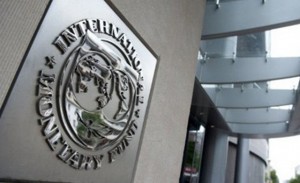
(AFP Photo)
A delegation from the International monetary fund (IMF) is expected to reach Egypt on Wednesday to negotiate with the government regarding the loan $4.8bn, said cabinet spokesperson Alaa El-Hadidy, according to Reuters.
ON 25 March, Minister of Finance Al-Morsi Hegazy said that an IMF delegation led by Masoud Ahmed, director of IMF operations in the Middle East, was set to visit Egypt this week.
“Egypt is not going to get an emergency loan from the IMF, we are aiming for the full loan, and we are not facing a “crisis” in financing imports of essential goods,” said El-Hadidy.
Masood Ahmed, director of the IMF’s Middle East and Central Asia department, visited Cairo on 17 March, confirming the IMF would continue talks aimed at agreeing possible financial aid.
The government is targeting raising foreign reserves to $19bn by the end of this current fiscal year. “To increase reserves, we need tourism to return back, besides opening up foreign markets,” said Hadidiy. “The government has sought to accomplish this through recent visits such as the prime minister’s to Iraq, South Sudan and Davos, all of which can stimulate the economy.”
The government of President Mohamed Morsi had reached an agreement with the IMF in November 2012, but final ratification was postponed in December, amid unrest sparked by President Mohamed Morsi’s economic reforms.
Negotiations have now been suspended for over four months.
“Actually, the government is not going to sign the deal unless it executes the terms of the IMF loan deal,” said economic expert Sherif El-Khreiby.
According to the Financial Times during the beginning of the IMF loan talks in 2012, IMF chief Christine Lagarde said the organisation wanted “clear plans from Egypt regarding reducing the budget deficit by increasing revenues, through reducing public sector subsidies including subsidies on food and fuel”.
“Egypt must also secure funding from other lending institutions as part of the loan terms,” said Lagarde.
Prime Minister Hesham Qandil said in a recent interview on Egyptian television that “Egypt will be responsible in assessing how to act and how to spend the loan”.
“The loan including its own terms is really a very good deal for Egypt,” he said. “It will be repaid after five years with an interest rate 1.1%.”
“Current talks are just a way of procrastinating until the parliamentary elections end,” said El-Khreiby.
El-Kheriby added that the government refused the terms of the loan, despite Egypt now “starving for any funds to be poured in”.




